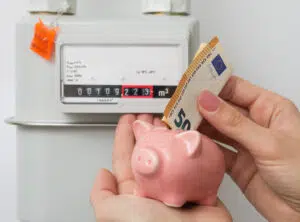Take advantage of your move to save on your energy bill
Are you planning to move house in the coming months or weeks? This is the perfect time to cancel your energy contracts (electricity and gas) and re-evaluate your profile and consumption habits to find the most advantageous subscriptions for your new home.
Contracts tailored to your consumption profile

Nowadays, most energy suppliers offer online customers the opportunity to simulate their consumption, in order to obtain an estimate of their bill and any savings they may make by switching supplier. How do they do this? Thanks to algorithms designed to match the customer's consumption profile with the best offers for their needs and home. These tools take into account :
- The full address of the accommodation ;
- Type of accommodation (house, apartment, primary or secondary residence, etc.) ;
- Surface area ;
- Meter rating (in kVA) ;
- Tariff option ;
- Number of pieces ;
- Number of occupants ;
- The type of energy used for heating and domestic hot water;
- Type of hob (electric, glass-ceramic, cast-iron, etc.).
Depending on the site and the supplier, different types of results may appear: some offer a price comparison with regulated tariffs (the reference offer).
Change of address: an opportunity to take advantage of the competition

Fixed-price offers protect consumers from price rises over several years, allowing them to plan their energy budget in advance and smooth it out.
Indexed prices are modelled on regulated tariffs, but apply a discount to the price per kWh, so as to remain lower in terms of tariffs.
